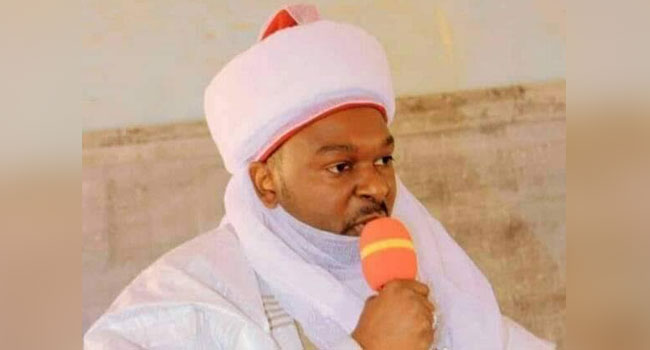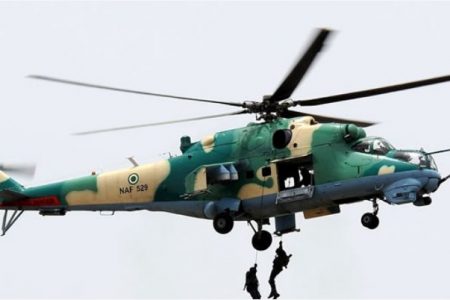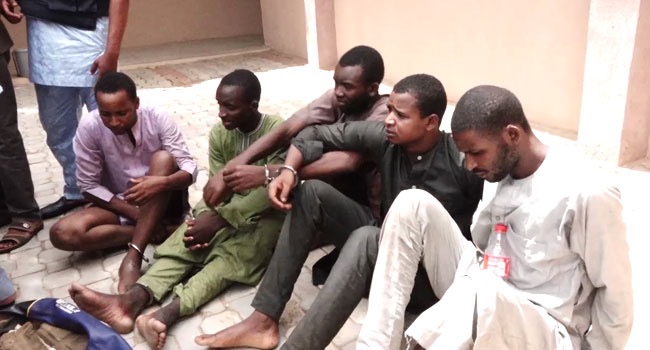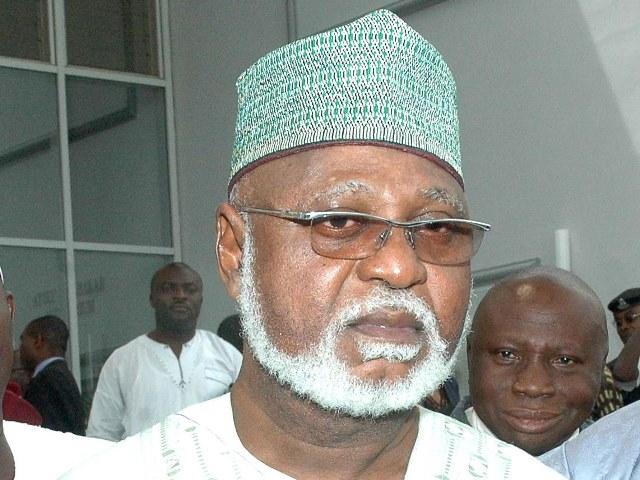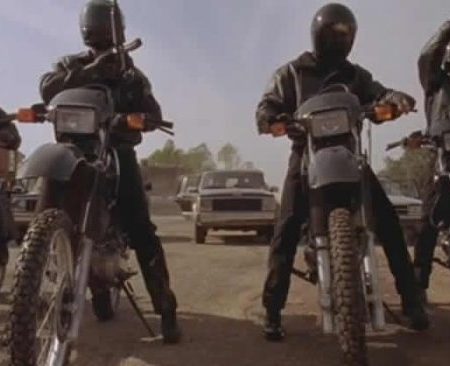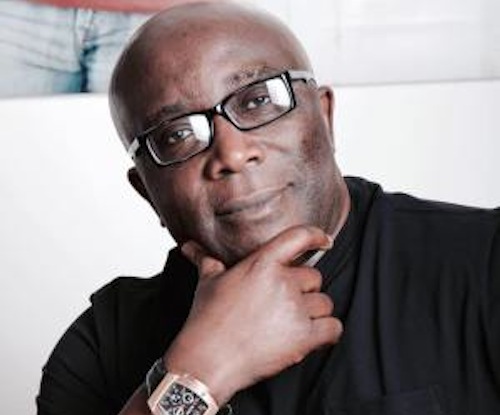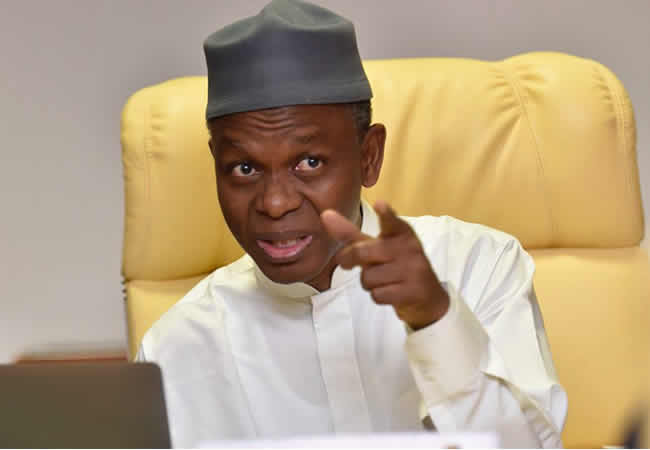Chidi Amuta
On the eve of the 2015 presidential election, this reporter had cause to write a dying minute column in this newspaper entitled: “A Call at Midnight”. It was a warning on the clear and present calamity awaiting the nation if the Jonathan administration mismanaged the election and its eventual outcome. At that point, there was clear evidence of dangerous desperation on both sides which needed to be carefully managed. The specific object of focus was the imminent orderly transfer of power to a successor administration whatever the outcome of the election. Jonathan was being encouraged by his in -house devotees to dig in while Buhari and his weaponized acolytes were threatening bloody Armageddon if they lost. Jonathan’s subsequent orderly transfer of power to Mr. Buhari was a nullification of the fears of that moment and a victory for the future of a democratic Nigeria. The drums of war were silenced. The halo of fear was lifted and replaced with the euphoria of some conditional optimism in the horizon.
Even if he now denies all that he inherited from Mr. Jonathan, President Buhari cannot deny the prime gift that democracy under Jonathan gave him. That lone afternoon phone call from Jonathan to congratulate him and concede defeat in the 2015 presidential election was perhaps the most sterling act of statesmanship in recent Nigerian political history and will remain a major landmark in the evolution of Nigerian democracy.
The cruel irony of this moment in Nigeria is that a president that received power on a platter of grace has navigated the nation into such an avoidable storm. And as the nation grapples with a different and more grave uncertainty, the central question confronting Nigeria as a democratic republic is whether, come May 29th, 2023, Mr. Buhari will be able to hand to his successor what he received painlessly from Jonathan in 2015. As matters stand today, however, it may be too much to ask Mr. Buhari to bequeath a better nation than what he received from Mr. Jonathan. All we can now ask, pray and hope for is that Nigeria does not implode under Buhari’s watch.
It is literally another midnight hour for Nigeria even though a transitional election is still about two years away. Before our very eyes, our worst fears have replaced the faint hope that we once entertained. In spite of fancy titles, lofty offices and elaborate ceremonies of state power, the incumbent leadership has failed to reassure our people on even the most elementary entitlements of citizenship. In the ravaging unprecedented insecurity that is sweeping through the entire country, so many pillars of nation statehood have virtually dissolved or have been badly compromised. The value of our individual citizenship has sadly been reduced to day to day survival from ever present danger. As a national society, our sense of community is gone. The mutual trust that until now held nationalities, regions, states, peoples and individuals together has been vastly eroded. The language of national cohesion has been replaced by an indiscriminate exchange of hate rhetoric across the lines that divide us. Suddenly, the things that divide us – faith, ethnicity, region, means and access to opportunity- have been played to the forefront of our national discourse.
Among those entrusted with the security of the state, all we hear is a cacophony of discordant voices. While the babel of discord rages, here is what ordinary Nigerians are experiencing on a daily basis. No one can keep tabs of the exact figure of people being killed, kidnapped, abducted or displaced on a daily basis. Funerals for souls lost in this undeclared war dovetail into each other. Even the presidency has run short of words for routine condolence messages for lost citizens. The children we labour so hard to send to schools are being routinely carted away into dangerous forests by agents of the dark. Some of them have been wasted in dark forests by agents of the devil. Education, the known key to end ignorance and poverty, has become a dangerous and ambiguous adventure in many parts of the country.
People who leave their homes in quest of livelihood or to visit loved ones are no longer sure that they will get to their destinations or return to the loved ones they left behind. Our highways have become avenues of death. The innocence of pastoral life in the villages is daily assaulted and violated by armed strangers. Our farmlands have become killing fields. It used to be that when trouble visits urban areas, we return to the villages for shelter in the primal embrace of nativity. Not any longer. Urban neighbourhoods are terrorized by youth in cultic formations wielding dangerous weapons and incensed with unknown concoctions from hell. Wives and daughters are openly violated sometimes in full view of family while desperate calls for help from law enforcement is met with uncaring indifference or polite avoidance. Even for law enforcement personnel, the uniform that used to confer strength, authority and some immunity has become a mark of the beast, the costume of those who must die.
Progressively, the forces of insecurity seem to be armed with a compass systematically targeted at suffocating the arteries of our shrinking national sovereignty. Beginning from the North East, the campaign of untidy conquest and sporadic occupations has spread steadily to the North West. North Central and now the South East. Abuja is within gun sights as panic has been reported even in the most hallowed precincts. Lagos is stressed as the remaining bastion of economic survival erupts ever so frequently in cult clashes and daylight gang upheaval.
Geidam, the Yobe state home town of the new IG of police, is effectively under the control of Boko Haram, invaded with little or no resistance. The Governor of Niger State says Boko Haram is within two hours of Abuja, having hoisted their flag in five Niger State local governments. As if that was not enough, Boko Haram has taken over homes, confiscated people’s wives and has now begun collecting taxes in the affected areas. In effect, Boko Haram has mapped a bloody trail of sporadic occupations and conquests from Lake Chad and Maiduguri to parts of Niger and Bauchi State. Kaduna state is effectively a theatre of war, with a daily count of kidnappings, shootings, abductions and sectarian blood letting on a scale that is hard to understand.
In the South East, a range of carefully selected strategic targets have come under systematic attack in recent weeks. Police formations, stations posts and correctional institutions in Imo, Anambra, Abia and pats of Akwa Ibom states have been razed and law enforcement personnel killed at a frightening rate. Arms and ammunitions are being lost to non -state actors in these daily raids. From most indications, groups like IPOB may have entered an active combat stage in their separatist struggle in obvious retaliation to the violent crackdown of the state. Vigilantes and private armies armed and equipped by stupendously rich politicians are equally at work. They are on the prowl, wreaking vengeance on opponents on behalf of their patrons through acts of arson, murder and pillage. It is now hard to make a distinction between jihadists, bandits, armed political thugs and free lance criminals in a national free for all where criminality has graduated into a thriving enterprise.
The state as the ultimate guarantor of security and order is everywhere under siege. The army, police and other security agencies that we have so lavishly funded to protect us are overwhelmed by the fire power of armed non- state competitors. The sense of national sovereignty that sustained Nigeria for the fifty years after a sad civil war is gradually shrinking as we watch helplessly while swathes of our national territory have come under the armed control of all manner of hoodlums, bandits, separatists and extremist terrorists.
Literally outgunned and outnumbered by armed competitors it created and empowered by default or design, the state is literally gasping for breadth. The superiority of force which confers pre-eminence on every nation state is today in doubt in Nigeria. A strong and capable state does not negotiate and appeal to criminals that constrict the freedom and liberty of citizens or threaten their lives, limbs and livelihood. As we speak, no one has had the courage to tell us whether Nigeria is at peace or at war. But our citizens know they are living in a theatre of war. Even in a war situation, the choice is simple. Who goes there? Enemy or friend? If you choose wisely, you live. Otherwise, you perish as part of conflict statistics. But in Nigeria today, there is neither friend nor outright foe. Reality wears an inscrutable mask. People die needless deaths.
Government can neither guarantee the fierce protection of a war situation nor the secure tranquility of peace time. Increasing the numerical strength of the armed forces without disarming the illegal armed contestants is futile. Inequality, poverty, porous borders and insecurity as an industry are producing armed criminals at a pace faster than the state can ever match with its declining resources. Regular soldiers and police men need time for training and a budget to be equipped and armed. Bandits need only a phone invitation, an AK -47 sourced from hell and a few hours of weapons training. Soldiers and policemen are supposed to be inspired by patriotism and protection of national sovereignty. For bandits and outlaws, hunger, anger and greed are the only sources of morale.
The more politically charged segments of the elite are now asking whether Nigeria as we have come to know it can survive in tact with all the forces of stress and tension pulling the nation in many different separatist directions. The ugly message of ‘re-structuring’ and national separation has trickled down to the markets, village squares, churches, mosques and bus stops. Ordinary people have begun to imagine themselves as citizens of unlikely places like Oduduwa Republic, Biafra, Arewa Republic and the like.
How did we get here? In the period between 1970 and 2015, greater inclusiveness became the bedrock of a new national order. Through balancing acts like the zoning formula adopted by successive political parties for key political offices and observance of the federal character principle, Nigerians built up a sense of national community based on balancing and compromise. National survival and cohesiveness became a function of sustaining the inclusiveness that makes us a diverse polity and a multi cultural society. Among ordinary Nigerians, this sense of give and take had become an axiom of national life. It fuelled social and cultural interactions and an acceptance of our diversity. Nigerian Moslems celebrated Christmas as much as their Christian compatriots observed and celebrated the various Moslem holy festivities. Children of Moslem elite were as comfortable in Western fashion and cultural norms just as Nigerian Christian holiday makers opted for Dubai and Abu Dhabi as their favorite holiday destinations. The harmless Fulani herdsmen were a common sight across the country and posed no danger to anyone.
The difference between the incumbent Buhari administration and all his post civil war predecessors is his systematic and deliberate policy of nepotism and exclusion of ‘other’ Nigerians from the pinnacle of state power and patronage. For Mr. Buhari, Nigeria seems to begin and end in a concentric circle that spans outwards from Daura, Katsina State, North West, North East and North Central and then fades into ‘other’ parts of Nigeria. Some have blamed this nativism on the man’s limited national exposure. I do not agree. He has been military commander around the country, a military head of state, roving politician and now elected president for nearly six years. This is enough exposure to cultivate a national network of competent Nigerians to entrust with the affairs of the nation.
Under the Buhari administration, therefore, we have suddenly woken up to a nation divided along all conceivable lines. The harmless Fulani herdsmen of yesterday have been replaced by roving AK-47 wielding criminals. Churches and mosques have become the favourite targets of senseless suicide bombers. Christians and Moslems now find themselves on different sides of an avoidable divide. As the government looks on literally unperturbed, the politics of ethnicity and regionalism has re-emerged to exploit the sense of insecurity and the openly divisive politics of the central government. In a predominantly ethnocentric society in which the dominant mentality of the majority is to interpret government actions, policies and appointments from a purely ethnocentric perspective, Buhari has fed a latent monster and it has returned to haunt us all. A restive political class whose political socialization is rooted in primordial sensibilities now has a ready turf to play on. From being proud Nigerians, we are now children of Oduduwa, Biafrans, Children of Arewa, Niger Deltans and Middle Beltans etc. Our preferred security architecture now boasts of strange formations like Amotekun, Ebube Agu, Civilian Joint Task Force and sundry other nameless militias armed by incumbent politicians.
A rudderless economic policy template has worsened the poverty and inequality that have always been with us. While India, China and Brazil pride themselves in the millions of their citizens they have migrated out of poverty in the last decade, Nigeria now stands out as the one resource endowed nation that has migrated the largest percentage (almost 40%) of its population into avoidable poverty in the same time frame. The poverty capital of the world now has over 100 million Nigerians in it! Perhaps nothing else explains the epidemic of insecurity in today’s Nigeria than the unprecedented inequality and crisis of abject poverty.
Poverty and uncertainty have deepened Nigeria’s most stubborn pre-existing condition: systemic corruption. The very security forces entrusted with the task of securing the nation cannot credibly account for billions of dollars in extra budgetary security and defense spending in recent years. Overflowing bureaucracies at federal and state levels ensure that often inflated charges for recurrent expenditure take precedence over much needed spending on social services like education, health and social welfare. The provisions for capital development are often inflated by a legislature that places a price tag on basic oversight functions. The already impoverished majority are further burdened with ever increasing taxes on gasoline, electricity, airport use and tolls on badly maintained roads.
By the moment, the urgency of the emergency we face is recasting the defining questions of our national life. Those who believe in democracy are wondering whether routine democracy can dig Nigeria out of the ditch dug for us by the Buhari presidency. At best, the nagging question is whether in fact the precarious state of our national security will allow Mr. Buhari to get to the end of his tenure in 2023. On this, we really have no choice. Only democracy offers the way out of our present quagmire. We must not entertain the nightmare of alternative forms of regime change. Nor should we encourage the political hounds in Abuja to chase off the beleaguered President through an untidy impeachment move. That is lazy politics. The legislature, executive and the professional managers of violence should work together to contain the security situation in the context of democratic norms.
Still, Nigeria’s current existential insecurity poses a novel question for both political theory and practice: the poser is simply this: When a democratically elected leadership runs a nation aground, can democracy save itself and also salvage the nation so endangered?
